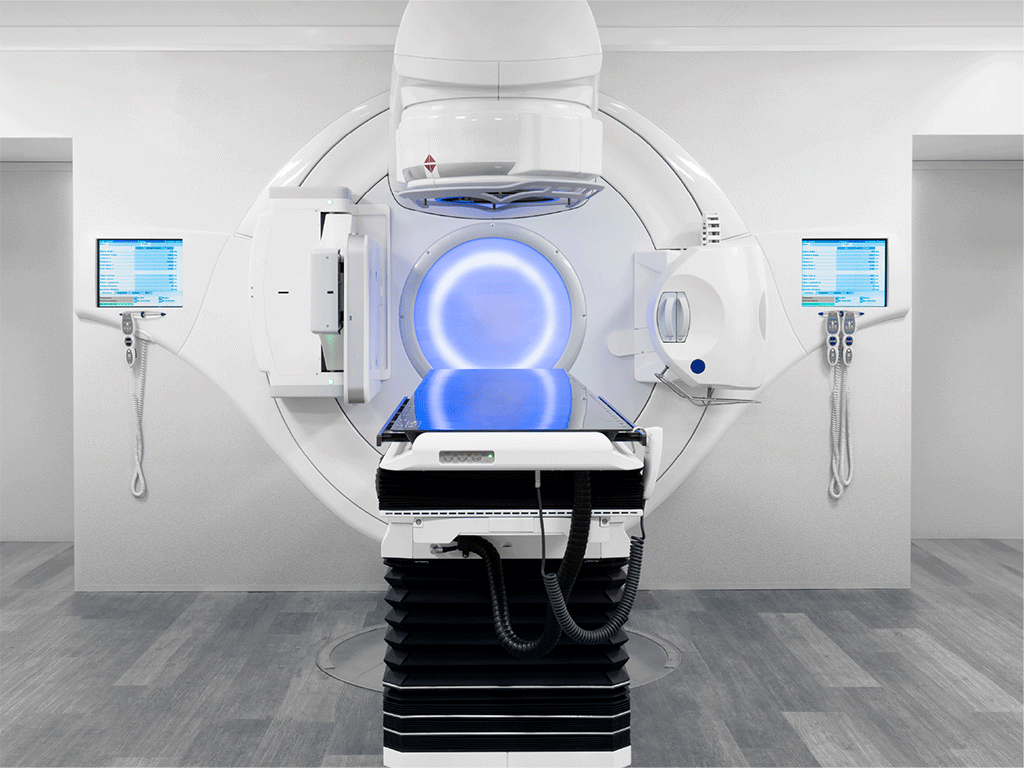Wireless Infrastructure

What is a particle accelerator?
A particle accelerator is a device that accelerates subatomic particles, such as electrons, protons, or ions, to high energies. These accelerated particles are used in various fields, including scientific research, medicine, and industry. Particle accelerators greatly increase the kinetic energy of these particles, playing a crucial role in studying the phenomena that occur when they collide with each other or interact with other materials.
How a Particle Accelerator Works
A particle accelerator primarily uses electromagnetic fields (electric and magnetic fields) to accelerate charged particles, such as protons or electrons. In this process, the particles' speed increases, giving them higher energy. These accelerated particles are then used to collide with specific targets or with each other to analyze the properties of the particles or the structure of matter.
Particle accelerators can be divided into two main types:

1. Linear Accelerator (Linac): This type accelerates particles along a straight path. As the particles move in a straight line, they are accelerated by electric fields, undergoing multiple stages of acceleration. Linear accelerators are commonly used in radiation therapy and experimental physics research.

2. Circular Accelerator: This type accelerates particles in a circular path. Magnetic fields are used to keep the particles on a circular orbit while they are accelerated. Examples include cyclotrons and synchrotrons.
Main Types of Particle Accelerators
Particle Accelerators in Industry

GaN Solutions vs. Traditional Vacuum Tube Devices
This table compares RFHIC's GaN solid-state microwave solutions with traditional vacuum tube-based devices like Traveling Wave Tube Amplifiers (TWTAs), Klystrons, and Magnetrons across key attributes.
|
Characteristics |
GaN Solutions |
TWTA |
Klystron |
Magnetron |
IOT |
Gyrotron |
| Efficiency | Medium | Medium | Medium | Medium | High | Very High |
| Lifespan | Long | Short | Medium | Short | Medium | Medium |
| Output Density | High | Medium | Very High | Low | High | Very High |
| Response Speed | Very Fast | Slow | Slow | Medium | Fast | Fast |
| Heat Management | Excellent | High heat | High heat | High heat | High heat | High heat |
| Maintenance | Minimal | Frequent | Regular | Frequent | Regular | Regular |
| Compactness | Very Good | Large | Large | Medium | Medium | Large |
| Cost | Higher upfront but economical | Relatively inexpensive but high maintenance | Very expensive | Cheap but frequent replacement | Expensive upfront, moderate maintenance | Very expensive |
The Role of RFHIC’s GaN Solid-State Solution in Particle Accelerators
RFHIC's Gallium Nitride (GaN) solid-state solution plays a crucial role in particle accelerator systems. Traditional vacuum tube-based devices had limitations in terms of size, efficiency, and lifespan, but RFHIC’s GaN solution addresses these issues, significantly enhancing the performance of particle accelerators. Specifically, GaN technology allows for faster and more efficient transmission of the microwave signals required to accelerate particles, making it widely applicable in high-energy physics experiments and medical radiation therapy.
Advantages of RFHIC’s GaN Solid-State Solution
List of RFHIC’s GaN Solid-State Solutions for Particle Accelerator Applications
|
No. |
Category |
Frequency Min (MHz) |
Frequency Max (MHz) |
Output Power (W/kW) |
Voltage (V) |
Efficiency (%) |
Power Gain (dB) |
| ID001K5DD-F | Transistor | 1 | 400 | 1200 | 60 | 75 | 23 |
| ID001K5DD-P | Transistor | 1 | 400 | 1200 | 60 | 75 | 23 |
| ID001K5DD-NP | Transistor | 1 | 400 | 1200 | 60 | 75 | 23 |
| IE051K2DC | Transistor | 495 | 505 | 605 | 50 | 74.7 | 18.8 |
| IE05600DC | Transistor | 499 | 501 | 550 | 50 | 74.7 | 19.1 |
| IE13550D | Transistor | 1295 | 1305 | 300 | 50 |
79.2 |
14.9 |
| IE30330PC | Transistor | 2800 | 1310 | 50 | 50 | 63 | 11 |
| IE6305040V | Transistor | 5725 | 5875 | 1 kW | 40 | 55 | 13.7 |
| RIM051K0-20 | GaN Solid-State Amplifiers | 589 | 593 | 2 kW | N/A | 68 | N/A |
| RIM132K0-20 | GaN Solid-State Amplifiers | 1295 | 1305 | 1 kW | N/A | 65 | N/A |
| RIM151K0-20 | GaN Solid-State Amplifiers | 1496 | 1502 | N/A | 62 | N/A | |
| RIU00273K0-20TG | Microwave Generator | 25.8 | 28.5 | ||||
| RIK1330K-40TG | Microwave Generator | 1295 | 1305 | 30 kW | N/A | ||
| RIK154K0-40TG | Microwave Generator | 1496 | 1502 | 4 kW | N/A | 53 | N/A |
Conclusion
RFHIC's GaN solid-state solution overcomes the limitations of traditional particle accelerator technology, offering higher efficiency, compact size, improved heat management, and longer lifespan. As a result, it enhances the performance of particle accelerators in various scientific and industrial applications, providing innovative solutions in terms of reliability and cost reduction.
If you would like to learn more about RFHIC’s GaN solid-state solutions in particle accelerators, please fill out the form below: